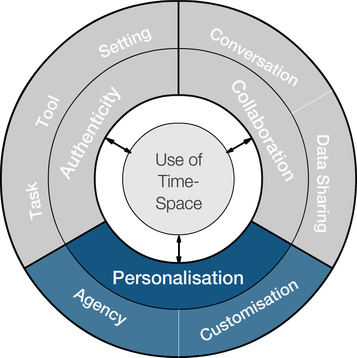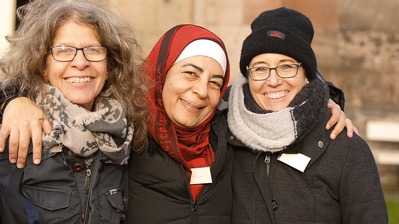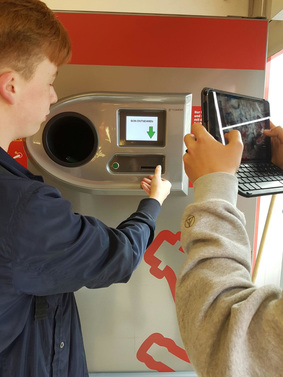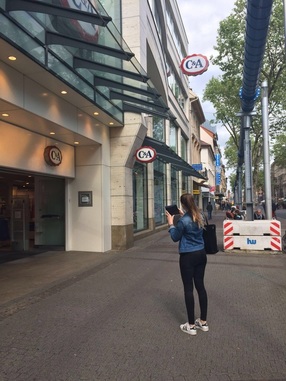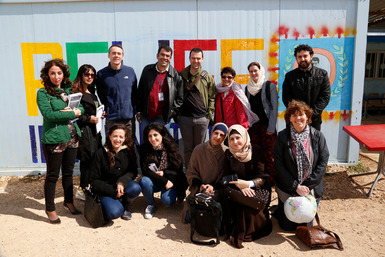Tutorials for refugees in Germany
Vertical Divider
IntroductionThe use of mobile devices in schools can be a great way to open up education for situated learning scenarios. This video shows how students get involved with social learning by helping others in a meaningful way. In this example students help refugees to fulfil their ambitions to integrate themselves in a strange and unknown society by creating video tutorials for them (in cooperation with local refugee organisations).
Objectives of this scenario:
Description of the learning scenarioAt the start of the learning scenarios refugees were asked to create videos including questions including what they wanted to know about Germany. These videos were the starting point of the first lesson, where students were asked to imagine the problems they would have to face when moving to different country with a different culture. The students used iPads to create collaborative mind-maps and to present them to their class.
Each learning group familiarised themselves with one problem scenario and personalised their product outcome (i.e. what topic, form of storytelling, media they want to use etc ...). The different groups used their iPads to gather data and the camera to shoot pictures and videos for their tutorials. They also used the iPad for video editing, creating comic stories and storybooks. The working tutorials were presented to the class and evaluated via online feedback before shared with the project partner (refugee help). Impact of the learning scenario on studentsWe have found that situated learning scenarios are more effective than traditional lessons. Students want to perform in the best way possible when their work is presented to others outside their schools. The students take their work much more seriously, create more accurate work, make fewer errors when compared with work for, "the teacher's eyes and ears only". They also make more use of tools such as dictionaries and spell-checkers. Being able to create things from their own imaginations and being able to use the tools they wanted to use was also a big impetus.
|
How could this scenario be extended?
|
